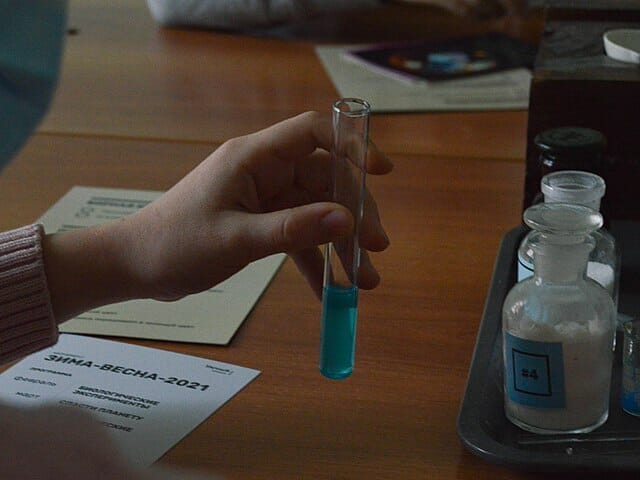
The transition between studying STEM at secondary or high school to studying at university can be daunting. Whereas content is often spoon-fed to students at school, university rewards independence and an awareness of up-to-date research. Over my past 2 years as a Medical Sciences student, I have adapted to the way that higher education teaches science and have learnt to overcome (most) of the challenges that my degree has presented to me. The following are pieces of advice I wish I’d known sooner. These all come from the perspective of my degree only, but most of which should translate to other STEM degrees.
Managing your high workload
It’s no secret that STEM students have a high workload, even during the first year. This can be demoralising at first, especially seeing your humanities and arts friends enjoying much more free time than you. The first step is to accept that the high workload and more hours in the library come with the STEM territory. There is no cheat code to fit more hours of study into the day, however, time management skills will allow you to fit in hobbies, socialising and part-time jobs around your workload.
Everyone has their own area of interest, and finding yours will make you a better student.
My other piece of advice is to try and learn to love your subject. Finding areas within your modules that greatly interest you will make studying feel like less of a chore, as well as help you remember your content. During my second year, I realised that learning about patient experiences with medical conditions helped me to care more about the physiology behind diseases. Therefore, I knew that looking into disease symptoms via stories from patients would make studying my subject a lot more engaging for me. Everyone has their own area of interest, and finding yours will make you a better student, as well as a happier one.
Critical appraisal and essay skills are a must for exams
Memorising facts and processes through A-level biology was close enough to understanding the curriculum and allowed me to get a good grade. Make no mistake, knowledge of content is still needed to complete multiple choice and short answer exams. However, university exams require much more than the repetition and understanding of information. Most coursework consisting of essays requires you to critically appraise research papers, a skill that is sadly learned through experience and not taught.
At university level, most STEM students need to be able to search journals and databases to be up to date with research on a given topic. Luckily, most courses spend time familiarising students with the process of writing literature reviews. Learning to compare and contrast scientific papers will allow you to reach higher grades for coursework assignments. This is definitely scary at first, as academic papers can present as a wall of jargon at first. Rest assured that as you progress through your degree, you will become more comfortable with reading papers that look like they’re written in another language!
Group work is a key part of university learning
Many modules contain group projects which carry a portion of the overall grade. Most of us have learned to dislike group work, as it often involves unequal division of work, disagreement and confusion. Although rarely enjoyable, group work will help you build the skills needed in the workplace. I asked my coursemate to give his advice on this topic.
Zwei, a third-year Medical Sciences student, explains that “group work and team collaborations are essential components of university life, especially in the STEM field. Transitioning from your A-levels, this could be a challenge as your academic success is now dependent upon not only you but also your teammates. Here, communication is key – it is essential to voice your expectations and also take in the expectations of your team. At the beginning of a project, it is important to define the strengths and weaknesses of individual team members. This is so that different tasks can be done more efficiently by delegating them accordingly. It may feel stressful at the start but you will become much more comfortable as the year progresses!”
Try to attend lectures and labs, even if they aren’t compulsory
It can be tempting to sleep in through in-person lectures, knowing that they will be recorded and placed online to be rewatched. Similarly, 3-hour long labs are no one’s ideal way of spending the morning after a TP Wednesday, especially if they don’t directly contribute to your overall grade. There are two reasons why I’d encourage you to attend a reasonable amount of in-person content. The first is purely for academic reasons. Physically attending lectures, even if you aren’t up to date on content, makes content stick in your head much more than watching recordings. Additionally, lab skills are needed in later years of study, so it’s a good idea to get in as much practice as possible.
The second is that I have met my best friends on my course during hung-over mornings in labs, and boring lectures I’d rather have slept through. Having good friends on your course is a lifesaver for keeping on top of content and deadlines, and unsurprisingly, will make your time studying and learning much more enjoyable. Even if I had learned nothing from in-person content, the opportunity to meet and befriend people is invaluable.
Enjoy your university life beyond your degree
My final piece of advice may be cliche and obvious, but I still think it’s worth saying. University is so much more than the academic side. You’re meant to make mistakes and learn from them, and push yourself outside of your comfort zone in order to grow. Make sure to enjoy your time at Exeter, especially during your first year when there is less academic pressure. I wish you the best of luck!


